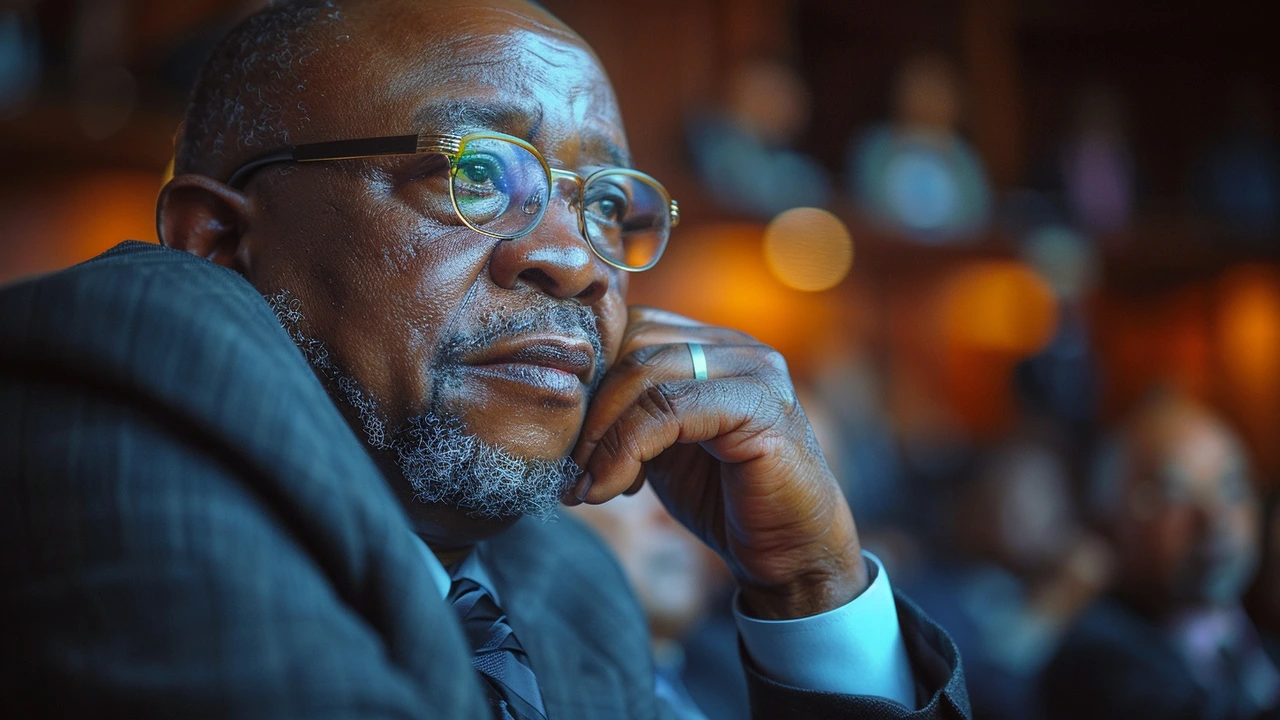Kenyan Agriculture Cabinet Secretary Mithika Linturi Faces New Challenges in Impeachment Proceedings

In Politics
Introduction to the Impeachment Hearing of Mithika Linturi
Recent developments in Kenyan politics have caught the national spotlight as Agriculture Cabinet Secretary Mithika Linturi faces an impeachment hearing. The process has seen an array of legal and procedural controversies, especially with new witnesses being allowed to testify against him. Linturi's legal defenses appear to weaken as the select committee overseeing his impeachment dismisses his preliminary objections, signaling a challenging road ahead for the Cabinet Secretary.
The Beginning of the Impeachment Controversy
The impeachment proceedings against Linturi started when a motion was introduced in the National Assembly, supported by what Linturi's legal team labeled as a 'flawed affidavit'. The affidavit in question, despite its alleged flaws, was admitted by the Speaker of the National Assembly, marking the first step towards the contentious impeachment process. Mithika Linturi's defense, led by Muthomi Thionkalu, has argued vehemently against the validity of this affidavit, but their objections have thus far been in vain.
Committee's Decision on New Evidence
The committee, chaired by Naomi Waqo, played a pivotal role in shaping the direction of the hearing after they overruled Linturi's objections related to the introduction of new evidence and witnesses. The crux of Linturi's legal team's argument was that bringing in new evidence or witnesses at this stage of the proceedings violated the fundamental rights under the Constitution. However, the chairperson maintained that the authority of the National Assembly to summon any witness to testify is unchallengeable, and the affidavit had already been admitted into the proceeding, deeming the objections insufficient to halt the process.
Strategy and Further Procedural Challenges
The committee's firm stance on including new witnesses brought forth the complexity and depth of the issues surrounding Linturi's impeachment. They emphasized the importance of addressing these national issues thoroughly and warned against trivializing the impeachment. In a telling remark, they advised Linturi, suggesting that if his claims of innocence were valid, the testimony of new witnesses should not be a concern.
Implications of New Witnesses in the Impeachment Hearing
The allowance of new witnesses to provide their testimonies could potentially introduce pivotal new evidence that may sway the hearing's outcome. This development adds a layer of unpredictability to the proceedings, making the impeachment hearing not just a legal battle but a public spectacle concerning the integrity of a high-ranking government official. It reflects the broader dynamics and the often intricate relationship between the legal frameworks and political accountability in Kenya.
Looking Forward: The Future of Linturi's Impeachment Hearing
As the hearing proceeds, all eyes will remain on how the introduced testimonies and evidence might affect the overall judgment. The coming days are crucial for Linturi, whose political career hangs in the balance, and for the Kenyan political landscape at large. The outcome could influence public trust in governmental procedures and the accountability mechanisms that govern political appointments and impeachments in the country.
This case serves as a critical examination of the checks and balances inherent in the nation's governance system, emphasizing how legal interpretations and procedural decisions can profoundly impact political fates.
Write a comment